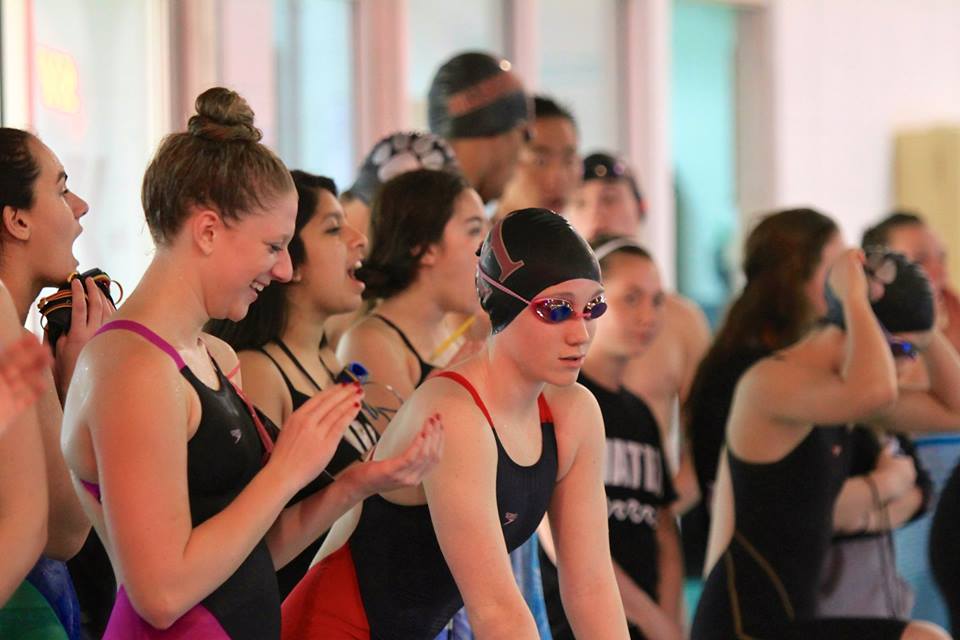Sportsmanship of the College Swimmer
There is a code of sportsmanship in every
game out there. While some of these are unwritten and understood, others are
more detailed. A college swimmer for example
has to follow certain rules when they are doing their laps in the pool, while a
quarterback is limited on the plays he can do on the field.
In this case, we must look at the college swimmer
and how the code of sportsmanship affects
them.
The first code, is taking pride in what you do. That means you not only finish the task you are setting out to do, but you always give it your very best. A college swimmer should give every practice and race everything they have. Their time in the water should be used effectively and they shouldn’t give up, just because someone else will likely win the race.
Next is embracing setbacks when they happen. You’re never going to be your best 100% of the time. But if you have a stumble, or you have to stop and catch your breath, don’t let it prevent you from still moving forward. The only time you truly lose as a college swimmer is when you give up in the middle of a race and throw in the towel.
Sportsmanship Goals Help You
You should also set new goals for yourself. Even if you are the champion swimmer in the world, you can still expand on what you want to achieve. Find new goals and push yourself to achieve these goals. As you do this and you work hard, you’ll find that you begin to understand sportsmanship on a deeper level and you can actually succeed.

Cooperation and kindness are also critical in the water. Yes, taunting and trash talk will happen to you at some point. It doesn’t mean you should spew it yourself. This toxic talk puts a damper on a time when everyone should be encouraging each other to do this best and to achieve their goals. At the same time, a safe place ensures that swim meets are fun and a positive experience for all those involved. You’ll cherish having positive memories of these events when you are older.
Sportsmanship Provides Lessons in Humility
Also keep in mind that for the college swimmer, your score and times are something to hold yourself up to, not other people. Your best might be 38.2 seconds but the other person may have pushed themselves hard and a 41.3 is their all time record. Don’t take away their success by rubbing your own accomplishment in their face. Instead, celebrate their time with them and don’t take that moment they feel great about themselves away from them. The goal after all is always to be #1, it is to have fun and to have an experience and memories with friends that will last you a lifetime.
Teams work together and you are all part of the same group. That is something you need to remember when you’re in the water. Not one person can carry the entire team. You are only as good as your weakest team member. If you see someone struggling, encourage them and help to practice with them so they can improve their times and scores. You’ll find this boosts their self esteem and confidence and that ultimately means that the team will benefit too.
Rules in Playing Fair
Above all, keep in mind that the rules are there for a reason. Make sure you understand what the rules are and why they are important. You’ll find that as you abide by them, there are fewer surprises and when something does happen, you are more likely to agree with the coaches and refs, rather than going head to head with them. After all, playing fair is an important thing that you want to reflect in all your achievements. Otherwise, others might view your awards and time records as something you didn’t actually achieve.
Remember, a positive and enthusiastic outlook on things is the best way to go. Make sure you take the time to do all you can in order to be successful. Remember, this is a group of people you can surround yourself with and grow closer over the time you share in the water. Make it count. Of course, there is nothing wrong with having a little confidence in your achievements at the same time. After all, you put in a lot of hard work and you have truly earned the success you have, just avoid getting to that point where people view you as someone who is gloating or rubbing it in.
Today’s Swimming Workout
Warm-Up: 500 choice of swimming strokes, relaxed in tai-chi style
4x150 one each stroke: butterfly, backstroke, breaststroke, freestyle and each 150 is swum 50 pull/50 kick/50swim
Kick with swim fins: 2x (100 porpoise, 2x50 flutter, 4x25 alternating porpoise and flutter)
Swim 3x (200 Individual Medley, 2x100 freestyle, 4x50 alternating choice of stroke and freestyle)
Pull with hand paddles: 2x (100, 2x50, 4x25) freestyle
Cool down: 200 with perfect technique
Total: 4300 meters or yards depending on the length of your pool
back to the top of sportsmanship page








